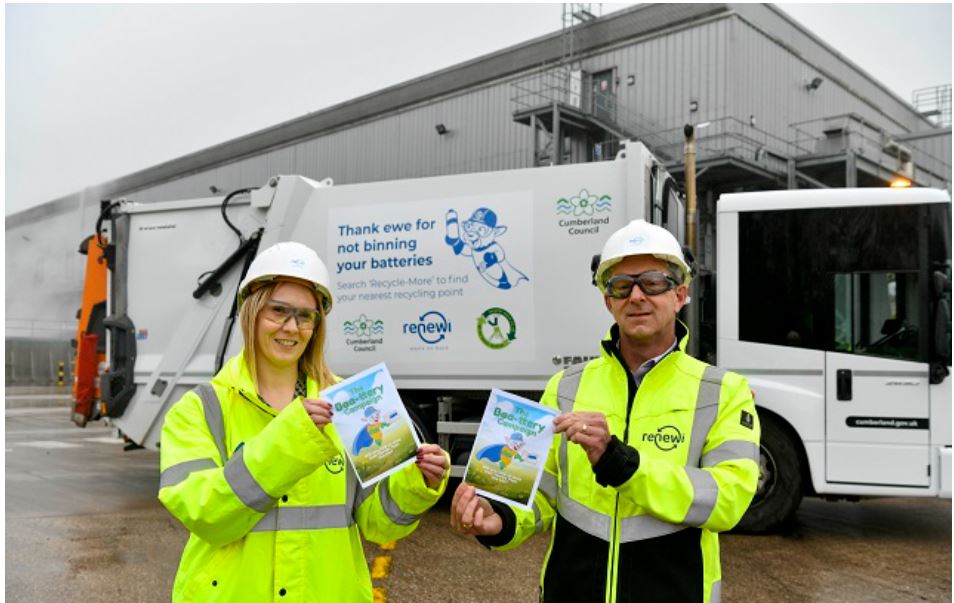And, as a result of the schemes evidence not being accepted by the Agency, the UK fell short of the non-statutory 10% collection target for the year, collecting a total of 9.45% of waste portable batteries for recycling.

It had been expected that the UK would meet the target, but the Agency said insufficient documentation received from CCR Rebat lead to a delay of almost a year in the release of the figures. The figures were due to be published in June 2011 but were only release last month, on April 2 2012.
However, it has now emerged that a tick box error was one of the reasons for the failure to hit the target with CCR Rebat not completing its registration form completely correctly.
One battery recycling expert told letsrecycle.com they had some sympathies with CCR Rebat over this and suggested that the Environment Agency could have questioned earlier whether there had been a mistake on the documentation. And, he said that with the battery recycling target for 2010 not being statutory, the Agency should have shown some flexibility in the interpretation of the regulations as these may not have been clear.
Data
Overall the final data for 2010 shows that around 43,446 tonnes of batteries were placed onto the market throughout 2010, while a total of 4,429 tonnes of waste portable batteries were collected for recycling. 53 tonnes of these were collected by CCR Rebat.
Dermot ORegan, advisor for batteries at the Environment Agency, told letsrecycle.com: We missed the target for battery recycling in 2010. One of the compliance schemes data was not counted toward the target because we did not accept the documentation that they had given us. I can confirm that this scheme was CCR Rebat.
CCR Rebat could not provide an audit trail or sufficient documentation that reported the amount of batteries collected or sent for treatment. We asked them for the audit trail and we felt that this was not sufficient. But, if the data had been accepted, the target would have been met.
Mr ORegan confirmed that the schemes interpretation of regulations relating to techniques for sorting did not match those of the Environment Agency and therefore evidence issued by the scheme could not be accepted in the final data.
CCR Rebat
In January it was confirmed that CCR Rebat had closed as part of an agreement between the schemes parent company CC Logistics Systems AF and the UKs second largest battery compliance scheme Budget Pack, which has taken on 85% of CCR Rebats battery producer members (see letsrecycle.com story).
Stephan Matz, managing director of CCR UK Ltd, told letsrecycle.com that the closure of the CCR Rebat scheme was not in any way related to problems with its data in 2010.
He said: There was lots of competition in the UK compliance market. It was very difficult to grow by ourselves so we decided to withdraw from the market and team up with Budget Pack. It was a strategic decision and had nothing to do with the EA data issues.
The 2010 issue that we had with the Environment Agency arose because there was an error when we applied to become an accredited battery exporter. When you apply to become an exporter you have to say what kind of batteries you want to export. We did not tick the box for portable batteries, so the Agency said the export tonnage did not count.
Target
Despite narrowly missing the target in 2010, provisional data published in March showed that the UK was close to the 18% recycling target for batteries in 2011, recycling a total of 17.8% (see letsrecycle.com story).
This year the first legally binding waste battery collection target set by the EU Batteries Directive comes into effect, with member states required to collect a total of 25% of all the portable batteries placed onto the market over the two preceding years. This target will rise to 45% in 2016.
Schemes have until the end of May to submit final figures and the Environment Agency revealed that once all of the evidence has been submitted for 2011, it is expected that the target will be met.
Mr ORegan said: We are working with the compliance schemes to ensure all of the available evidence is recorded. Evidence can still be issued on any batteries collected for treatment in 2011 before the end of May, but we are confident that the target of 18% will be met.
It is not much of a gap from 18 to 25% but we have to look forward to 2016 which is quite a leap. But, the schemes are doing well and we think that the system can meet the next target.










Subscribe for free